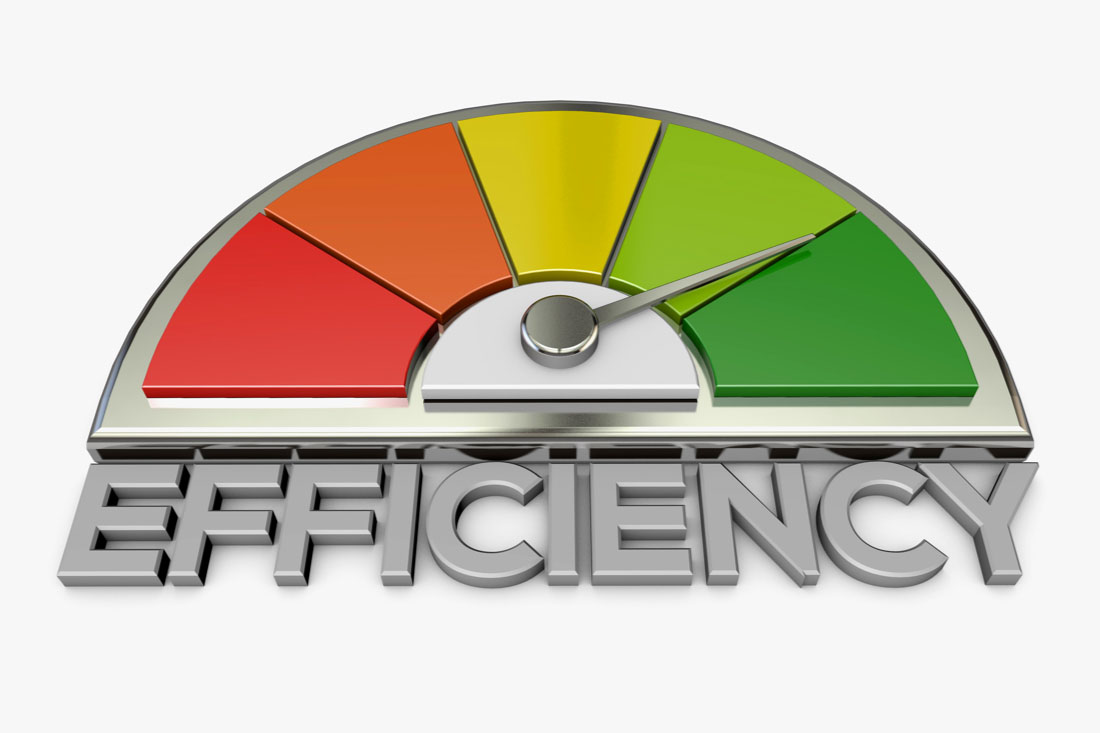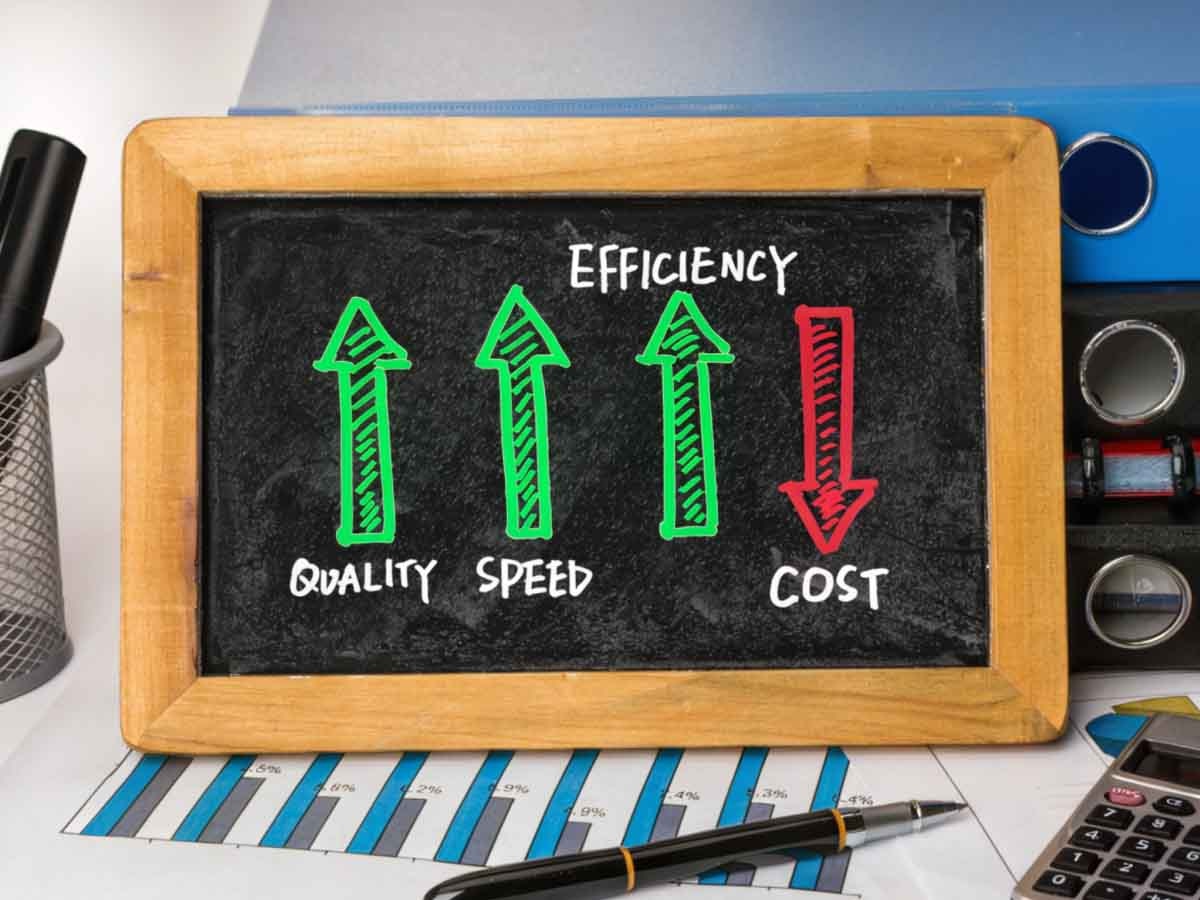Improving performance is one of the most effective ways to gain a competitive edge in today’s business landscape. But why is performance management important, and how can it help organizations achieve their goals?
To do this, you need intentional, consistent performance management processes. In this guide, we’ll discuss the importance of performance management using insights from studies and real-world examples.
Why is performance management important?
Performance management offers many benefits. More specifically, it allows you to:
1. Create more effective goals
Businesses know they need SMART goals but aren’t always equipped to make them. A good performance management strategy uses current and past data to help managers set goals for the future. Current data gives managers a baseline to work with, and historical data provides insight into long-term progression. For example, you can track how someone’s productivity has improved as they’ve become more familiar with their role, then use that information to set goals for the next year. Using data allows you to set goals that are more realistic for each employee and team. This also benefits new employees, as you can look at employees who performed at a similar level and set goals for the new employee based on their anticipated progression.
2. Improve employee productivity
Improving employee productivity is a key objective of performance management. Defined goals, regular feedback and identification of areas for improvement empower employees to stay focused, make necessary adjustments and strive for excellence. Research shows that organizations with continuous performance management practices experience 66% higher levels of productivity.
Effective performance management creates a culture of accountability and transparency in your organization. When employees understand how their contributions align with the company’s goals and objectives, they feel a greater sense of ownership and responsibility toward their work. This motivates employees to perform their best.
3. Identify training and development needs
According to Entrepreneur, 89% of surveyed employees want their companies to support their development. Through the continuous evaluation process that makes up performance management, organizations gain valuable insights into each individual’s strengths and areas where they may need additional training. This empowers organizations to design targeted training programs to enhance employee skills, fill competency gaps and meet evolving business requirements. By investing in employee growth, the organization ensures a skilled and competent workforce that can meet future challenges.
4. Increase engagement with employees
A good performance management system increases employee engagement in many ways. Regular, consistent performance management techniques encourage transparent communication between employees and management. According to Harvard Business Review, 72% of employees thought their performance would be better if managers provided corrective feedback. And Forbes reported that four in ten of workers become actively disengaged when they get little or no feedback.
Performance management provides managers with constructive feedback to help employees excel in their roles and collaborate better with others, which improves results and engagement across your entire workforce.
5. Boost retention and satisfaction
Research shows organizations with performance management processes attract talent 39% better than those without and boost retention by 44%. In other words, employees are more likely to stay engaged and committed to a company that invests in their professional development and offers opportunities for growth. Performance management not only enhances results but also contributes to building a loyal and motivated workforce, reducing turnover rates and increasing organizational stability.
Furthermore, employees who understand how their work contributes to overall organizational goals may have a higher level of satisfaction when those goals are achieved. Additionally, showing the part each team member within a team plays can enhance cohesion throughout the organization.
6. Recognize and reward top performers
Performance management provides additional insights to help managers recognize and reward employees outside their regular performance reviews. This empowers managers and leaders to reward employees for more than just hitting goals; they can also give praise on a day-to-day basis for small actions that otherwise might get overlooked. Effective time management, creative problem solving and helping colleagues complete tasks are all great examples. Rewarding good performance leads to better morale throughout the organization and inspires other team members to strive to do their best work.
What is performance management?
Performance management is the process organizations use to evaluate employees’ work and responsibilities. Unlike traditional employee performance appraisals, performance management is a more comprehensive process that focuses on continuous improvement and recognition to achieve both short and long-term company goals.
Performance management provides employees with opportunities to work more effectively, and managers can use insights from performance management tools to offer better coaching and support. Effective performance management also emphasizes collaboration so teams and employees work better together.
Key components of performance management
Performance management includes several essential components that work together to create a results-oriented work culture.
- Planning: Start by outlining job duties, roles and responsibilities so employees, supervisors and managers are on the same page about accountability and expectations.
- Goal-setting: Define SMART (Specific, Measurable, Achievable, Relevant and Time-Bound) goals for employees and teams.
- Monitoring: Regularly assess and measure employee performance against predetermined goals and standards.
- Feedback: Provide constructive, regular feedback, highlighting strengths and identifying areas for improvement.
- Development: Offer coaching and opportunities for employee growth, skills enhancement and career advancement.
- Engagement: Create opportunities for employees to get involved with your organization and its goals beyond their normal job descriptions, such as through team-building or volunteering.
- Recognition: Celebrate successes and achievements across the organization on a regular basis, including individual and team efforts.
- Recalibration: Use data to determine ways to improve your performance management program.
Streamline performance management with ActivTrak
Understanding why performance management is important is just the beginning. With ActivTrak’s performance management solution, you can align individual goals with organizational objectives, enhance employee engagement, boost productivity, and identify areas for development. This solution helps streamline the process of performance management with intuitive dashboards for managers and leaders, plus personal insight dashboards where employees track their own performance and progress towards goals.
Trusted by more than 9,500 organizations, ActivTrak’s suite of solutions helps you cultivate a high-performance culture and propel your organization toward sustainable growth and success. Contact our sales team and get started today.





